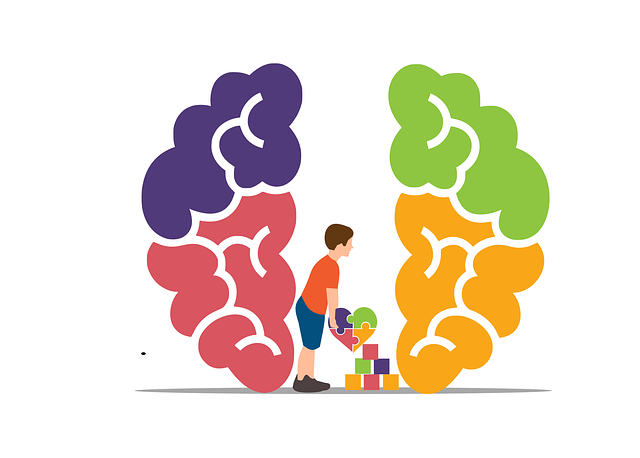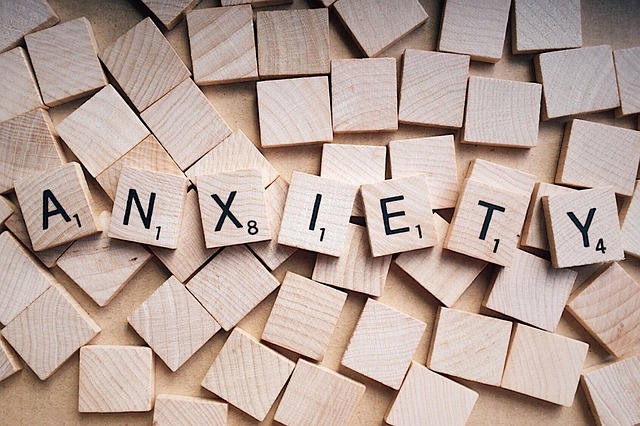In today's diverse societies, mental healthcare professionals at Littleton Stress Management Therapy must embrace cultural sensitivity for effective treatment. They tailor their approaches based on clients' unique beliefs, values, and practices related to mental health, considering societal norms, family dynamics, and historical experiences. By actively listening, undergoing continuous training, and using culturally sensitive techniques like plain language and mindfulness of non-verbal cues, therapists foster trust, improve care quality, and enhance outcomes. This inclusive approach not only promotes depression prevention but also builds healthier communities by addressing unique community challenges through initiatives like stress management workshops.
In today’s diverse society, cultural sensitivity in mental healthcare is paramount. The article explores how understanding cultural diversity shapes mental health experiences, with a unique perspective from Littleton Stress Management Therapy. We delve into the challenges faced by therapists when providing culturally sensitive care and present practical strategies for clinical practice. Furthermore, it highlights the benefits of culturally competent care, demonstrating its impact on enhancing client outcomes and community engagement.
- Understanding Cultural Diversity and Its Impact on Mental Health
- Challenges in Providing Culturally Sensitive Therapy: A Littleton Stress Management Perspective
- Strategies for Incorporating Cultural Sensitivity in Clinical Practice
- Benefits of Culturally Competent Care: Enhancing Client Outcomes and Community Engagement
Understanding Cultural Diversity and Its Impact on Mental Health

In today’s diverse societies, mental healthcare professionals must embrace cultural sensitivity to provide effective treatment. Understanding cultural diversity goes beyond recognizing different ethnic backgrounds; it involves comprehending the unique beliefs, values, and practices that shape individuals’ perspectives on mental health and wellness. For instance, what constitutes stress and its management varies across cultures. What might be considered a normal part of daily life in one culture could be a significant source of distress in another. This cultural lens influences how people express and cope with emotional struggles, making it crucial for therapists to be aware of these nuances.
In the context of Littleton Stress Management Therapy, recognizing cultural diversity enables professionals to tailor their approach. A simple journaling exercise or crisis intervention guidance might resonate differently with clients from various cultural backgrounds. By being attuned to these differences, therapists can foster a deeper connection, ensuring that the support provided is both culturally competent and effective in enhancing mental wellness.
Challenges in Providing Culturally Sensitive Therapy: A Littleton Stress Management Perspective

Providing culturally sensitive therapy is a complex task, especially when navigating the diverse landscape of mental healthcare. In the context of Littleton Stress Management Therapy, therapists face challenges in understanding and addressing the unique cultural beliefs and practices that shape an individual’s experience of stress and mental wellness. This complexity arises from the fact that stress manifest differently across cultures, influenced by factors such as societal norms, family dynamics, and historical experiences. For instance, what constitutes a healthy coping mechanism in one culture might be perceived as stressful or even taboo in another.
Littleton Stress Management Therapy aims to bridge this gap by incorporating cultural competency into its practice. This involves actively listening to clients’ backgrounds, engaging in ongoing training on diverse cultures, and tailoring therapeutic approaches to align with individual needs. By doing so, therapists can foster a safe and supportive environment that respects clients’ identities while empowering them to manage stress effectively. This approach not only enhances the quality of care but also contributes to building trust and improving outcomes, as evidenced by the growing success of Mental Wellness Podcast Series Production and public awareness campaigns focused on burnout prevention.
Strategies for Incorporating Cultural Sensitivity in Clinical Practice

Incorporating cultural sensitivity into clinical practice is a multifaceted process that requires intentional strategies to create inclusive and effective mental healthcare environments. One key approach involves actively listening to and understanding patients’ cultural backgrounds, beliefs, and experiences. This means being open to learning about different customs, traditions, and values that may shape an individual’s perception of health and illness. For instance, practitioners can explore the role of family dynamics or community support systems in a client’s life, as these factors significantly influence emotional regulation and stress management.
Additionally, integrating culturally competent communication techniques is vital. This could involve using plain language to ensure clarity, avoiding assumptions based on stereotypes, and being mindful of non-verbal cues. By employing conflict resolution techniques adapted to the patient’s cultural context, therapists in Littleton Stress Management Therapy can foster a safe space for clients to express their concerns and needs. Mental illness stigma reduction efforts that are sensitive to cultural nuances can also empower individuals to seek help without fear of judgment, ultimately promoting better outcomes in therapy.
Benefits of Culturally Competent Care: Enhancing Client Outcomes and Community Engagement

Incorporating culturally competent care practices within mental healthcare is not just a matter of ethical responsibility; it offers significant advantages in enhancing client outcomes and fostering stronger community engagement. This approach recognizes and respects the diverse cultural backgrounds, beliefs, and values of individuals seeking support. For instance, at Littleton Stress Management Therapy, we’ve observed that when therapy sessions are tailored to incorporate a client’s cultural context, treatment adherence improves. Clients often feel more understood and empowered, leading to increased motivation and better coping strategies.
Moreover, culturally sensitive practices enable mental health professionals to address unique challenges within specific communities. By organizing stress management workshops through organizations like the Stress Management Workshops, we can reach a broader audience, including those who might not traditionally access such services. This inclusive approach not only promotes Depression Prevention but also contributes to raising Mental Health Awareness, ultimately leading to healthier and more resilient communities.
In light of the diverse mental health landscape, adopting culturally sensitive practices is no longer a preference but an imperative. As highlighted by the discussions on Littleton Stress Management Therapy, understanding cultural nuances and incorporating inclusive strategies significantly enhances therapeutic outcomes. By embracing strategies to improve cultural competence, mental healthcare professionals can create safer spaces, foster stronger client-therapist relationships, and ultimately contribute to improved community mental health. This approach not only benefits individuals but also promotes equity in access to quality care.














